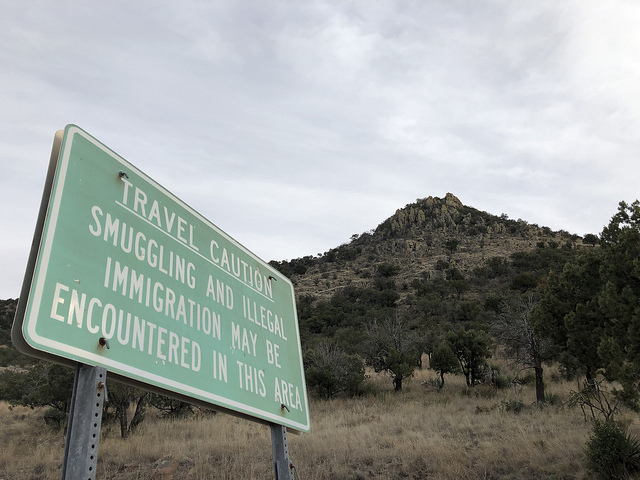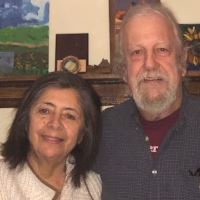“When an alien lives with you in your land, do no mistreat him. The alien living with you must be treated as one of your native-born. Love him as you love yourself, for you were aliens in Egypt. I am the Lord, your God.” -Leviticus 19: 33-34 (Epiphany 7A)
Preaching about immigration may depend less on where our head is, and more on where our feet are. If we stand on this side of the Rio Grande, our perspective may be one of how to “handle” immigration in a lawful, just and even compassionate way. If we stand on the Mexican side of the river (there called the Rio Bravo), our question may be more: why are we kept from entering land that was part of our people for centuries?
The two of us have served immigrant communities in the Bronx, Philadelphia and Minneapolis for over 30 years. Many of our families are a mix of both “undocumented” and “legal”: One or both parents immigrated from Mexico or elsewhere, children born here are U.S. citizens. Different status carries different legal, economic, and social ramifications. In terms of the gospel, that status doesn’t matter a bit. Or does it?
Luisa: Traveling through the Bible looking for where God stands on immigration, you can find a huge amount of material. Using a concordance, I quickly found at least 40 passages in the Old Testament that spoke of the Lord’s favor and protection for strangers living in a foreign land. The core of Leviticus 19 — love the alien as yourself — means more than treat them well; it means you are the immigrant. We are the immigrants, and in all these passages, immigrants are no different than the people of God.
But that is not how we are treated: we are treated as “the other,” suspect, mysterious; or called criminals, rapists, drug dealers, or godless gang members because of the color of our skin, our language and culture.
As an immigrant myself, I know the challenges that immigrants encounter. Although I came to the U.S. to marry my beloved Patrick in very happy and safe circumstances compared with most immigrants, I had a hard beginning. After abandoning all that was dear and familiar to me, I felt a great emptiness, disorientation and fear of losing my identity, even my mind. Only much later did I come to realize that my sudden disappearance from all I knew and loved made me disappear. I did not have the necessary references that reminded me who I was.
Most immigrants I know came to the U.S. moved by extreme need. They didn’t choose their exile with joy and confidence. The pain of leaving behind their most loved ones — children, spouses, parents — carries deep wounds of fear, shame, and guilt. Those who migrate walk a long path of uncertainty, with high risk; knowing they will become subjects of suspicion, rejection, violence, and even death. And every person who has a son or daughter, mother, father, siblings, or friends walking toward a new life is praying in the Name of God who walks with them.
Patrick: Six times in the last dozen years, our congregation has partnered with In the Heart of the Beast Puppet and Mask Theatre to produce “La Natividad” (The Nativity). This bilingual event combines theater with the Mexican tradition of La Posada, where people walk the streets with Mary and Joseph seeking posada, or shelter. As many as 200 people walk with candles up to our sanctuary, where the birth occurs, followed by hot soup, music and piñatas. It is a wonderful experience, filled with the joy of literally coming in out of the cold to witness the birth of Christ. (As I write this, the wind-chill is 25 below zero!)
La Natividad has been very well received, with few complaints. The first year, one person wrote: “Why are you bringing immigration into the Christmas story?” Neither of us were called to respond, for we might have said, “Have you ever actually read the Christmas story?” Both the Luke and Matthew birth narratives are about people on the move, pushed along by global and local forces beyond their control.
One could even say that all of Genesis and Exodus, indeed most of the Bible is about God’s immigrant people. The question for us as preachers may not be how to preach about immigration, but to ask ourselves and our congregations why we fear immigrants.
In Exodus 1:8–2:10 (Ordinary 21A), Egyptians who have the power, wealth and legal status are the ones who are motivated by fear, not the poor Israelites! Why are the rich so afraid? Why do they persecute the poor who are already downtrodden?
In the blessings of Matthew 5 (Epiphany 4A, All Saints A), it is these very persecuted who are blessed with the kingdom. And in Luke 6 (Epiphany 6C), look out if you’re the ones who control the resources, and decides who is in and who is out!
Finally, the gospel of John 1:1-14 (Christmas) may be the most eloquent portrait of what is like to be a stranger and be rejected. “He was in the world, and the world came into being through him; yet the world did not know him.” Or receive him. Or love him as it loved itself.
Yet it is this Stranger, this Rejected One, who is our peace; in his flesh he has made both groups into one and has broken down the dividing wall, that is, the hostility between us. (Ephesians 2:14). Given that great gift, there is rarely a Sunday where we cannot speak about loving the immigrant as ourselves.
In this regular Working Preacher column, “Preaching + ____,” writers incorporate lived experience into preaching upcoming lectionary texts.

